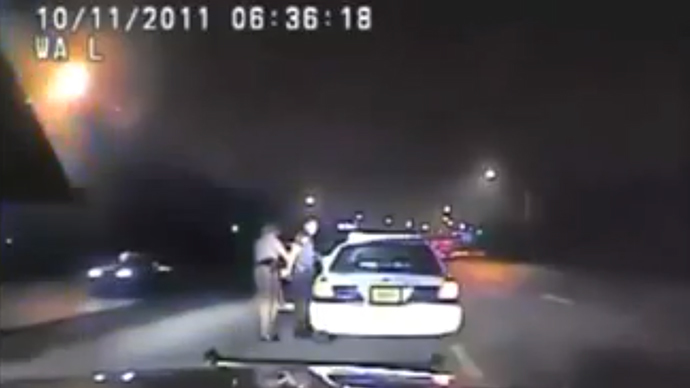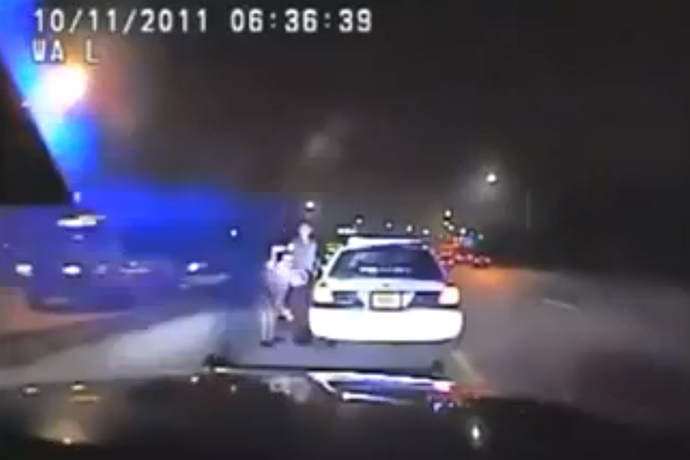Trooper sues more than 100 cops for harassment after pulling over Miami police officer

Florida Highway Patrol trooper Donna Jane Watts was just doing her job when she pulled over a Miami police officer for topping speeds of 120 mph, but the fallout has been anything but routine: She’s now suing her colleagues for harassment.
According to the Florida-based Sun-Sentinel, Watts has filed a lawsuit against more than 100 police officers and agencies for illegally accessing her personal information and creating a “life-threatening situation.”
Watts claims the harassment by law enforcement began after she pulled over Miami cop FaUsto Lopez in October 2011 for speeding in his patrol car. Traveling well over 100 mph, Lopez was reportedly weaving in and out of lanes so fast it took Watts seven minutes to pull him over even with her lights flashing and sirens blaring.

When Lopez finally pulled aside, Watts made her way to the police vehicle with her gun drawn, handcuffed the Miami officer, and took his weapon.
Lopez was eventually fired for his behavior, but that was just the beginning of the story for Watts. She began receiving phone calls from unknown phone numbers – some of which were prank calls, while others contained threats. The lawsuit alleges that orders for pizza were made in her name without her knowledge, and that multiple police vehicles would linger in front of her house or on her street.
The lawsuit states the situation became so dire that Watts "started to experience physical symptoms to include dry heaves and nausea when performing basic activities such as opening her mailbox, starting her ignition, or when being followed by a law enforcement vehicle for no apparent reason."

After filing a public records request with the Department of Highway Safety and Motor Vehicles, Watts discovered that her personal information was accessed by at least 88 officers from 25 different jurisdictions over a three-month span. Her profile was viewed more than 200 times total – a number that attorney Mirta Desir claims violates the Driver Privacy Protection Act. Under that law, improperly accessing an individuals profile results in a $2,500 fine per violation.
"This is an invasion of privacy," Desir, who is representing Watts, told the Sun-Sentinel. "Law enforcement does have access to information most residents don't and with that level of access there should come a certain amount of care. ... This is something that is not supposed to be done."
The various officials and law enforcement agencies have declined to comment on the matter, but they have asked the judge involved to throw out the lawsuit. According to the Associated Press, they believe Congress can only impose a penalty on police officers for selling personal data, not simply for viewing it.
The Department of Justice, however, disagrees, and has filed its own argument stating that multiple courts have upheld Congress’ right to monitor the issue regardless of whether information is sold or not.
"There is value in drivers' information and a market for it," Justice Department lawyers said to the AP. "What the defendants fail to recognize is that there is value in drivers' information whether or not it is actually sold."
Already, some police agencies have settled the lawsuit with Watts, acknowledging that their employees had broken the law. The city of Margate agreed to pay Watts $10,000 for the incident.
Even so, groups like the National Association of Police Agencies are now looking to change the law itself and remove the $2,500 penalty except for cases in which officers pursue opportunities to make money off personal data.
As for Watts herself, she’s still employed by the FHP, but has been relocated to another county.














